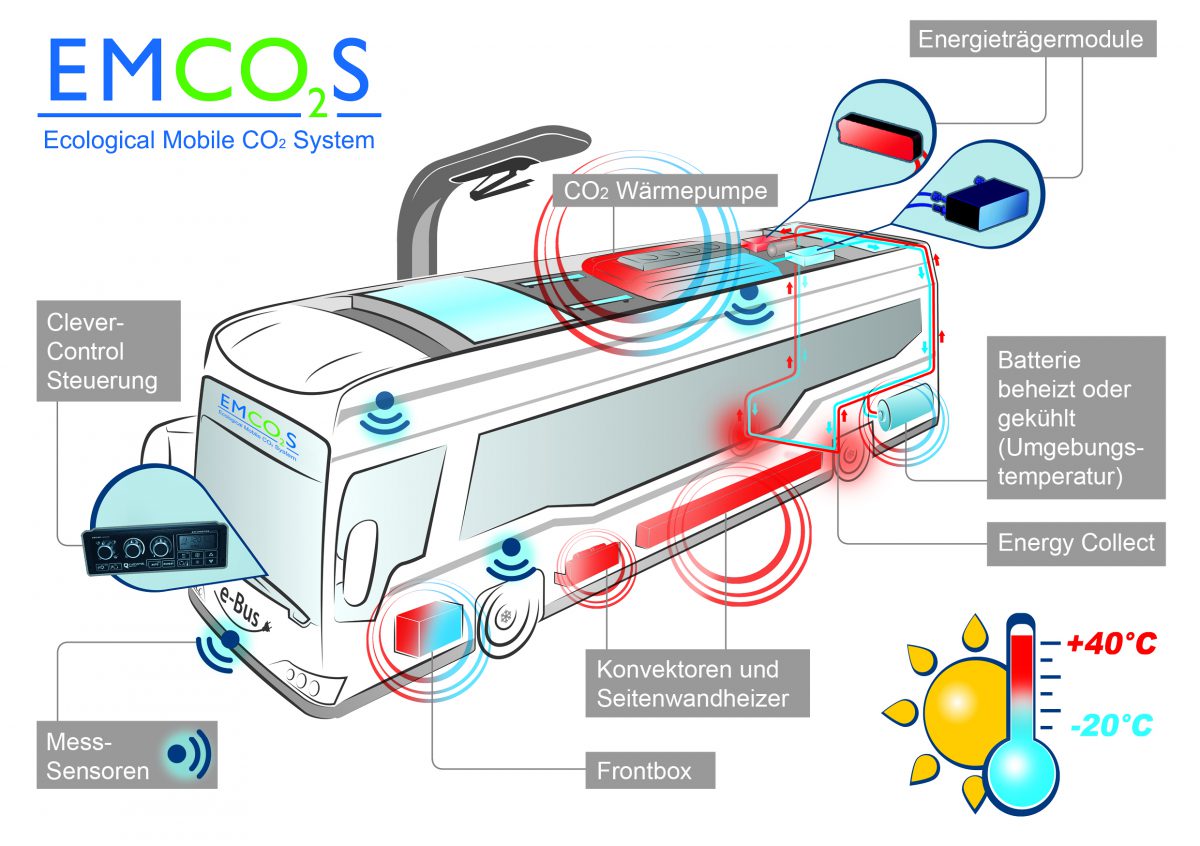Konvekta launches the EmCO2s: emission-free heating and cooling system for e-buses
Konvekta is launching the EmCO2s (pronounced “Emcos”), which is presented as a new, emission-free heating and air conditioning system for the electric bus market. With heat pump function and the alternative refrigerant CO2, the system requires significantly less energy compared to a system with electric heater, the supplier points out. Operating an electric bus efficiently […]

Konvekta is launching the EmCO2s (pronounced “Emcos”), which is presented as a new, emission-free heating and air conditioning system for the electric bus market. With heat pump function and the alternative refrigerant CO2, the system requires significantly less energy compared to a system with electric heater, the supplier points out.
Operating an electric bus efficiently and economically to save costs or gain range is only possible with efficient heating and cooling. A conventional thermal management system with additional electrical heating requires up to 50% of the energy available to an E-bus.

The systems is said to allow an increase of the electric bus range by 27%. The system has been awarded with one of the busplaner Sustainability Award 2021 at BUS2BUS 2021.
Konvekta EmCO2s system for electric buses
A number of 12-meter city buses were tested in an area with medium topography in Germany during the development process of the Konvekta EmCO2s. The vehicles were in operation for approximately 14 hours (including one break). The driving distance was approximately 140 km per day and the vehicles were not preconditioned. The data was collected across the entire vehicle system – from the engine and auxiliary consumers to the air conditioning components.

Konvekta says that the analyses showed that after a short warm-up phase in the morning and after the break, the system ran evenly, and the indoor set temperature of 20 °C was reached without any problems throughout the day.
«The vehicles with an EmCO2s system, as an overall system with optimally matched components, consumed only 1.58 kWh/km. A system with purely electric heating requires 2.15 kWh/km under the same conditions. At these low temperatures, the electric buses with an EmCO2s system were thus able to save around 27% energy or increase their range by 27%», according to the supplier’s calculations.
Konvekta EmCO2s
EmCO2s stands for “Ecological Mobile CO2 System” and leverages on the interaction of the individual components. This is achieved by a specially developed control unit – the Konvekta “Clever Control”. It does not control according to fixed parameters; instead, all vehicle data, such as the number of passengers, air quality, battery temperature, outside temperature, and other parameters, are individually recorded, evaluated, and the air conditioning is adjusted to the requirements.
If, for example, there are many people in the vehicle, the interior does not need to be heated as much, since each person warms up the bus with the heat of the own body. If there are only a few people in the vehicle, the interior must be heated more. This individual control, which automatically adapts to every situation, prevents unnecessary energy losses.
The Konvekta EmCO2s obtains the needed energy through a CO2 heat pump that draws up to 75% of the required heat or cold not from fossil fuel or electricity, but from nature – from the ambient air, Konvekta says. Furthermore, the EmCO2S system collects unneeded heat in the bus and stores it in two energy carrier modules. If necessary, the heat is fed back into the system, directly to the points in the passenger compartment where it is currently needed. This could be the waste heat from the axles or the battery, for example, which the system absorbs and stores temporarily so that it can be used later to heat the vehicle interior.








